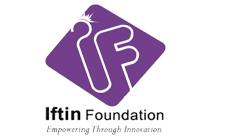In line with the general purpose of civic engagement program of political and social life of people with disabilities, Iftin Foundation conducted five-days field assessment (10th – 14th September) on key public spaces/places those provide service facilities in Mogadishu those made it possible an access for people with physical disabilities, especially where those with physical disabilities are able to access their services without the need for further assistance and demand.
This assessment was data carried out from the field in details and findings obtained during the assessment period are as shown below tables.
We have managed to reach 13 public service locations including Universities, Police stations, District Commissions, Banks, Business Malls, Hotels, Telecommunication companies and Hospitals.
Places visited, proportional numbers and percentages
| NO | Public places | Number of Places | Percentage |
| 1 | Hotel | 2 | 15.38% |
| 2 | Police Station | 2 | 15.38% |
| 3 | District Commission | 2 | 15.38% |
| 4 | Bank | 2 | 15.38% |
| 5 | University | 2 | 15.38% |
| 6 | Business Mall | 1 | 7.7% |
| 7 | Hospital | 1 | 7.7% |
| 8 | Telecommunication com. | 1 | 7.7% |
| Total | 13 | 100% | |
Number of places reached and district locations
| No | Districts | Number | |
| 1 | Waberi | 4 | |
| 2 | Hodan | 4 | |
| 3 | Wadajir | 2 | |
| 4 | Howlwadag | 2 | |
| 5 | Hamarweyne | 1 | |
| Total | 13 | ||
Below is a summary table of findings
| Questions | YES | NO | St. Agree | Agree | Neutral | Disagree
|
|
5 | 8 | ||||
|
4 | 9 | ||||
|
11 | 2 | 0 | 0 | ||
|
5 | 8 | ||||
|
3 | 10 | ||||
|
2 | 11 | ||||
| Total | 19 | 46 | 11 | 2 | 0 | 0 |
The assessment found, that 4 public places provide service facilities suited their places an accessibility for the people with disabilities, one place was normally accessible without understanding for PWDs while other 8 out of 13 were inaccessible their service the people with physical disabilities.
| NO | Space visited | Designed accessible | Natural accessible | Not Accessible |
| 1 | Police station | 0 | 0 | 2 |
| 2 | District commission | 1 | 0 | 1 |
| 3 | Hospital | 1 | 0 | 0 |
| 4 | Bank | 1 | 0 | 1 |
| 5 | Business mall | 0 | 0 | 1 |
| 6 | Hotel | 0 | 1 | 1 |
| 7 | University | 0 | 0 | 2 |
| 8 | Telecommunication | 1 | 0 | 0 |
| Total | 4 | 1 | 8 | |
This table shows people with physical disabilities and accessibility status as in percentage.
| No | Accessibility status | Number | Percentage |
| 1 | Designed accessible | 4 | 30.8% |
| 2 | Naturally accessible | 1 | 7.7% |
| 3 | Not accessible | 8 | 61.5% |
| Total | 13 | 100% | |
Conclusions
Findings were discovered shows that 4 spaces out of the 13 selected places which equivalent 30.8% have accessible design for people with disabilities, and 1 place is naturally accessible without any deliberate design for serving of people with disabilities while other 8 places which equivalent 61.5% have no accessible service for People living with disabilities.
84.6% respondents from key public spaces visited responded that there is need to have access of people with disabilities for the facilities of public places by marked strongly agree and 15.4% respondents selected agreed in the assessment form provided while there is no anyone refused.
Recommendation
Based on the assessment findings shows that most key public spaces serving with community including people with disabilities have no access facilities for PWDs. Grant assumed similar results and hence proposed follow on activities to address these gaps in facilitating access to persons with physical disabilities to public spaces to encourage their public and political participation. As such, IFTIN will support the following interventions and activities to attempt at responding to these challenges. IFTIN will consider how key public places owners/managers to be aware for facilities accessible for physical disable people.
IFTIN will consider the following interventions in the future;
- To engage high level awareness programs for the public in order to bring the attention of the people that people with disabilities are active and great number of the community.
- Spaces and buildings’ plans should be included that people with disabilities particularly those physically disable to have access with the facilities provides by the places.
- To have laws treat with the disable people by relevant bodies to secure the rights of the people with disabilities in Somalia in both accessibility and participation of politics and the public life.
- Based on the assessment, most of the respondent said they didn’t received any complaint from people with disabilities about inaccessibility of their facilities where accessibility of their spaces is very low, thus people with physical disabilities required to double their efforts and share their service barriers with public space owners/managers.
- Construction companies, owners and the local government are required to consider that this very serious business to keep the value of people with disabilities.

